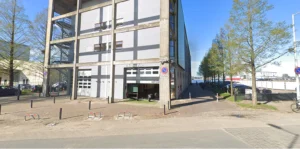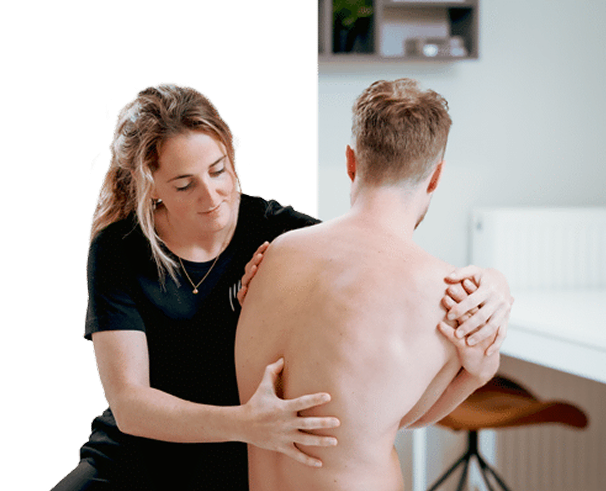Physical complaints
Hip pain
Suffering from hip pain? Whether it's pain with movement, radiation to your leg or symptoms while running, your hip plays a major role in almost every movement you make. Hip pain can start out mild, but without proper management, it often worsens. At The Physio Man we look for the cause of your complaints and help you with a targeted treatment plan and clear exercises for recovery.
Causes of hip pain
Hip pain can occur in a variety of ways. Sometimes it is the result of improper movement or overuse, such as while running. In other cases, wear and tear, bursitis or an injury plays a role. Pain in the hip can also radiate to the leg, indicating involved nerves or muscles around the joint.
Common causes:
- Overuse in sports such as running.
- Bursitis (bursitis) in the hip.
- Muscle or tendon irritation due to improper loading.
- Osteoarthritis or wear and tear of the hip joint.
- Pain due to incorrect posture or walking pattern.
- Hip pain with radiation to the leg due to nerve irritation.
Common injuries and conditions in the hip
Bursitis of the hip
In hip pain bursitis, the bursa around the hip joint is irritated or inflamed. This causes pain on the outside of the hip, especially when lying on that side or sitting for long periods of time.
Overuse in running
Hip pain in running often comes from repeated shock loading and inadequate recovery. This can lead to tendon irritation or decreased stability in the joint. Runners sometimes experience stiffness or nagging pain during or after running.
Radiation to the leg
Hip pain with radiation to the leg is often caused by nerve entrapment, muscle knots or irritation of the low back. This can cause tingling, nagging pain or loss of strength.
Osteoarthritis in the hip
Wear of the cartilage in the hip causes pain and stiffness, especially when standing up or after sitting for a long time.
Symptoms in hip pain
Do you recognize these signs? Then it’s smart to get a hip pain test or examination at the physical therapist:
- Pain in the hip when walking, climbing stairs or running.
- Stiffness in the morning or after rest.
- Pain with radiation to the leg.
- Difficulty squatting or turning.
- Searing pain on the outside of the hip.
- Pain after standing or sitting for a long time.
When does physical therapy help hip pain?
Physical therapy is effective when symptoms persist or keep recurring. We help with:
- Hip pain physical therapy to regain mobility and strength.
- Recovery after bursitis.
- Improve your gait for hip pain when walking or running.
- Reduce pain and inflammation.
Even if you want to continue exercising, such as running, we’ll look together at how you can do that responsibly.
Exercises for hip pain
Movement is important for recovery, but it must be done in the right way. Exercises for hip pain help make muscles stronger and more flexible. Examples:
- Hip lifting – strengthens the buttock and hip muscles.
- Lateral hip abduction – improves stability and strength.
- Lunge step – trains the hip muscles functionally.
We tailor all exercises for hip pain to your situation so that symptoms do not recur.
This is how The Physio Man helps you recover
We don’t just look at your hip, but the overall picture: posture, gait, muscle function and ability to recover.
Mobilize, empower and guide
Depending on your symptoms, we focus on:
- Mobilize hip and lower back.
- Strength and stability exercises.
- Massage or trigger point treatment.
- Advice on load, posture and recovery.
Long-term recovery
We build up your load step by step so that symptoms don’t return and you can move pain-free again.
This is how we approach it at The Physio Man
- Intake and examination – thorough analysis and, if necessary, a hip pain test.
- Customized treatment – a plan that fits your goals and workload.
- Working together – step by step to pain-free movement.
Share this article:
Share this article:


